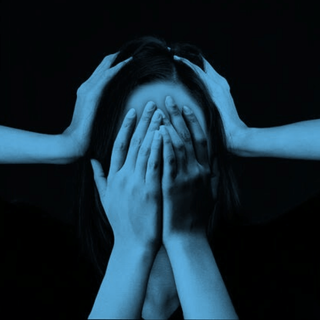
Some Mental Health Therapists Are Prescribing … Books
Called bibliotherapy, prescribing books that mirror a client’s experiences can help them cope and feel catharsis.

This isn’t another article about why you should read (more). But it is about how, if tending to your mental health is one of your new year’s resolutions and you’re out shopping for therapists, you should consider finding someone with experience in bibliotherapy, or reading therapy. It’s been around since the time of the Greeks but in the quiet and personal way books tend to affect us. With conversations about mental health becoming increasingly mainstream, bibliotherapy has taken on a modern avatar.
Psychotherapists across the world today are seizing on to the well-known ability of books to move and change us and are turning that into a structured, guided effort to deal with clients’ mental health struggles, ranging from everyday anxiety to complex adolescent struggles about identity and sexuality.
Sam Gladding, Ph.D., who specializes in creative counseling methods, describes bibliotherapy as a three-way interaction between a book, a therapist and a client. “The counselor and the client consider problems or stress areas in the client’s life; then the counselor ‘prescribes’ a book or story for the client to read,” he told Very Well Mind. Bibliotherapy takes the personal experience of reading and expands it to include a therapist who, after intensive conversations, prescribes a reading list of fiction, non-fiction or a mixture of both, to the client based on what they’re struggling with and their history, inclinations, reading habits and mental health issues, if any. The therapist and client then come back to discuss the challenges faced by the protagonist in the prescribed book and how they handled it, and the applicability of those solutions to the client’s life.
But Gladding says it’s crucial that the book or story relates directly to the client’s main problem so they identify with the protagonist at an emotional level. This enables the clients to feel understood and experience “catharsis” or an emotional release, as they experience the protagonist of the story struggling with and overcoming struggles similar to theirs. This catharsis, when examined with the assistance of a trained psychotherapist, can lead to rational insight about the relevance of the solution proposed in the book to the client’s own experience.
“I had a client in New York, a man who was having his first child, and was worried about being responsible for another tiny being,” Ella Berthoud, a bibliotherapist at School of Life tells Ceridwen Dowey, who first came to her as a client and later ended up writing “Can Reading Make You Happier?” for the New Yorker. “I recommended Room Temperature by Nicholson Baker, which is about a man feeding his baby a bottle and having these meditative thoughts about being a father. And of course To Kill a Mockingbird, because Atticus Finch is the ideal father in literature,” Berthoud says.
Related on The Swaddle:
Art Therapy Is About Finding Value in the Process, Not the Result
Sometimes, when dealing with issues such as anxiety and depression, or coping with grief, it can be difficult to make sense of what’s happening in your mind and body, especially if there are no other experiences to compare it to. Bibliotherapy bridges this gap — a therapist prescribes books that mirror one’s challenges or journey so as to allow the client to work their way through finding similarities between their story and the book’s characters’. The bibliotherapy service offered by School of Life — a global organization offering innovative courses to help people deal with the daily emotional challenges of existence — promises potential clients they’ll be “guided to books that can put their finger on feelings that [they] may often have had but perhaps never understood so clearly before.”
When practiced in a group setting, bibliotherapy allows people to give and receive feedback about their interpretations of each book and how it relates to the problem they’re facing. As people in the group chip in with their take on it based on experience or narrate a similar situation they’ve been through, it gives each person even more perspective to their individual problems. Articulating complex thoughts and circumstances can also help improve communication and foster community. “Having a strong support system and sense of community has been shown to be integral to good mental health, and ‘Bibliotherapy’ provides this setting,” Apurupa Vatsalya, a lawyer-turned-sexuality educator, told The Asian Age. Along with Sneha Rawlani, a counselor, she founded Bibliotherapy, a unique book club in Mumbai modeled along the lines of support groups.
The case for bibliotherapy runs the risk of sounding intangible and esoteric — as those about reading tend to — but there’s actual research backing up bibliotherapy’s effectiveness. A 2011 study found that when people read about an experience, the same areas of their brains are stimulated as when they go through that experience themselves. By extension, when the protagonist of a story finally overcomes a challenge the reader is also going through, the latter experiences this overcoming — and herein lies the catharsis and the motivation. A 2012 study by researchers at Ohio State University found that reading could actually change a reader’s behavior. In one experiment, participants who strongly identified with a fictional character who had to overcome several obstacles to vote were significantly more likely to vote in a real election.
Bibliotherapists employ these aspects of reading to treat a host of issues such as anxiety, depression, substance abuse, eating disorders, relationship issues, existential angst and even interpersonal issues such as managing anger or shyness, Very Well Mind lists. “Issues regarding how to handle grief, rejection, or almost any of the negative ‘isms’ such as racism, sexism, ageism, may also be addressed through bibliotherapy,” Gladding said.
“I’ve found novels and short stories to be particularly helpful when clients are at a critical juncture in their lives. Perhaps they’re facing retirement or have been laid off from their jobs or are single parents. It is a form of expressive therapy, in which I advise people to read books with the intent to heal,” Dr. Shefali Batra told Hindustan Times.
It is important at the point to note that bibliotherapy is not an alternative to medication or psychiatric consultation, only a supplementary therapeutic approach. As Dr. Batra puts is, bibliotherapy “enhances the effects of medication.”
But, in case you’re not ready to see a therapist or don’t need one at the moment — if this article proves anything, it’s that you should read (more). According to a University of Sussex study, six minutes with a book — literally any book — reduces the reader’s stress by 68%. That’s one hell of a therapy session.
Pallavi Prasad is The Swaddle's Features Editor. When she isn't fighting for gender justice and being righteous, you can find her dabbling in street and sports photography, reading philosophy, drowning in green tea, and procrastinating on doing the dishes.
Related


What It’s Like to Live With: Post‑Traumatic Stress Disorder
